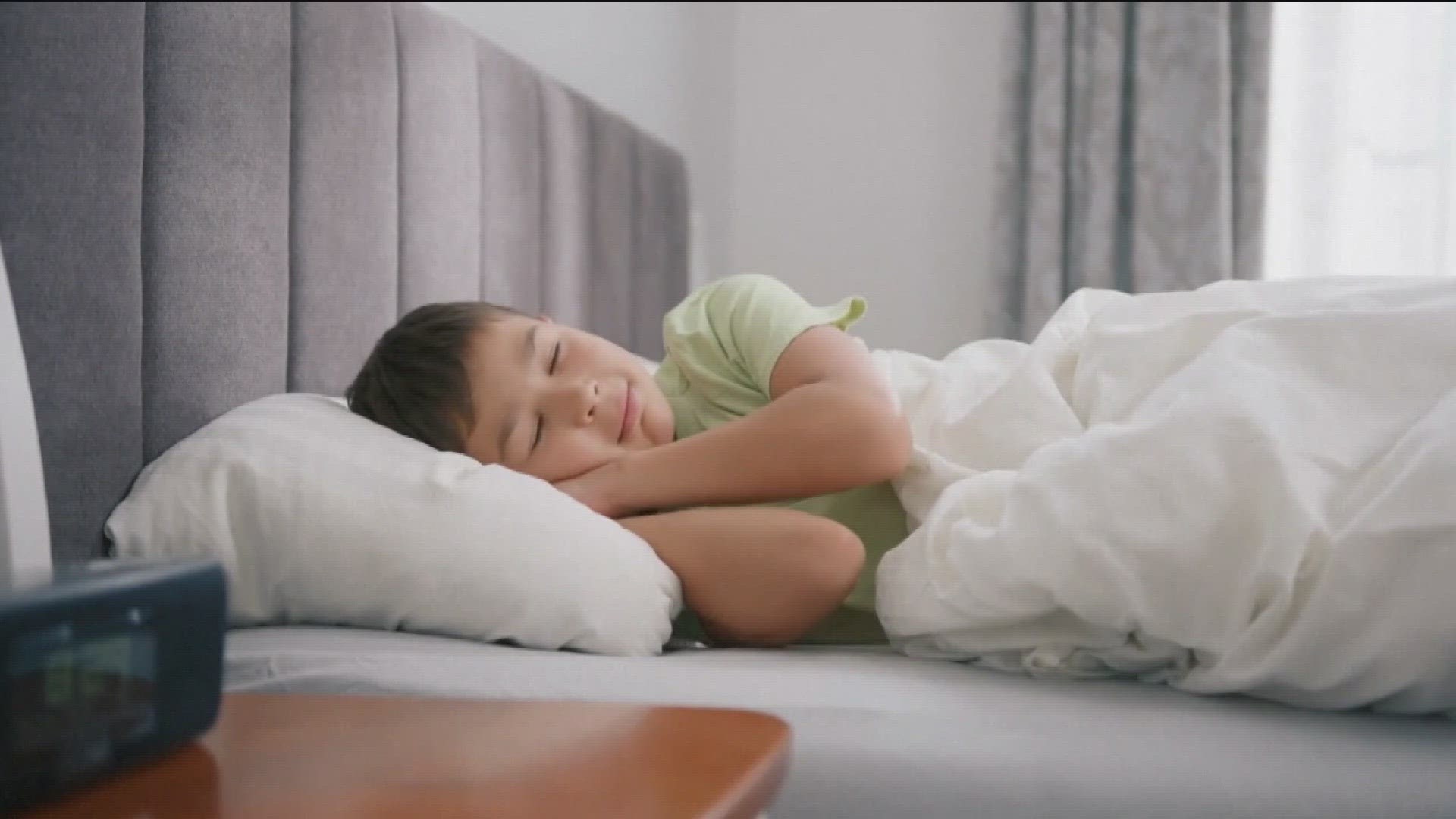SAN DIEGO — Doctors say sleep can be the best medicine but many people might not be getting enough after the time change this week.
World Sleep Day is March 15. But it’s more than just catching up on quality rest, it raises awareness about sleep disorders that contribute to other health issues for adults and children.
You may have hit the snooze button a few more times this week since we sprung forward and lost an hour due to daylight saving time.
“Maybe it’s time to think about abolishing it,” said Rakesh Bhattacharjee, M.D., Chief of Sleep Medicine at Rady Children’s Hospital.
Pediatric sleep is not widely studied. Rady Children’s says it is a leading accredited children’s hospital with a sleep program.
He says with the sun up later in the day, early bed times are harder and with it darker in the mornings it’s affecting mental health.
“That morning sun aligns our circadian biology which allows our body to function on a clock. But also, it can actually have an impact on your mood. And a lot of people struggle with depression, sadly, and a lot of it can be just not getting enough sunlight at the right time,” said Bhattacharjee.
He says sleep is critical for child development.
“So, there’s so many facets of sleep that are quite critical. And one of them would be growth. And so since kids are growing, we do worry that if you’re not getting enough sleep, it can impact the normal trajectory of growth for kids,” said Bhattacharjee.
As politicians battle out the time change debate, parents can still implement better sleep habits for their kids.
“We call this the domain of sleep hygiene,” said Bhattacharjee. “Just like physical hygiene, brushing your teeth, cleaning your clothes, we need to respect what we do for hygiene in order to maintain our sleep cycles.”
To better understand sleep, Bhattacharjee helped break down how much rest a child needs at what age so parents can better plan for what time a child needs to go bed to wake up on time.
Infants need 12-16 hours of sleep, toddlers 10-14, elementary kids 9-12, and middle school and teens need 7-9 hours of sleep.
We also found some helpful habits to get into a healthy bed time routine. Dr. Bhattacharjee recommends minimize screentime.
“Because when we’re looking at screens, we’re essentially looking at the sun and what happens is, then our brain says, 'oh, if I’m looking at the sun, I don’t need to release melatonin. So, I don’t need to go to bed right away.' But you do because you need to wake up for school,” said Bhattacharjee.
Dim the lights and while kids and teens shouldn’t be drinking coffee or soda, some do. The doctor strongly encourages anyone to avoid caffeine in the afternoon and at night to avoid sleep issues.
“These types of things can be quite harmful if you want to fall asleep in time,” said Bhattacharjee.
And time is your best friend for you and your family to get enough zz’s.
“We need to respect sleep for ourselves, but we also need to respect sleep for our kids,” said Bhattacharjee.
To learn more about pediatric sleep visit the Pediatric Sleep Council.
At CBS 8, we are always Working for You and our community. This is a station promise that we will go the extra mile to solve a problem our audience can’t solve themselves. We want to hear your ideas on how we can cover and help our community. If you have a story idea, please email us at workingforyou@cbs8.com.
WATCH RELATED: Resetting Your Sleep Routine | Helpful Habits for Better Sleep to Get Back on Track This Fall

